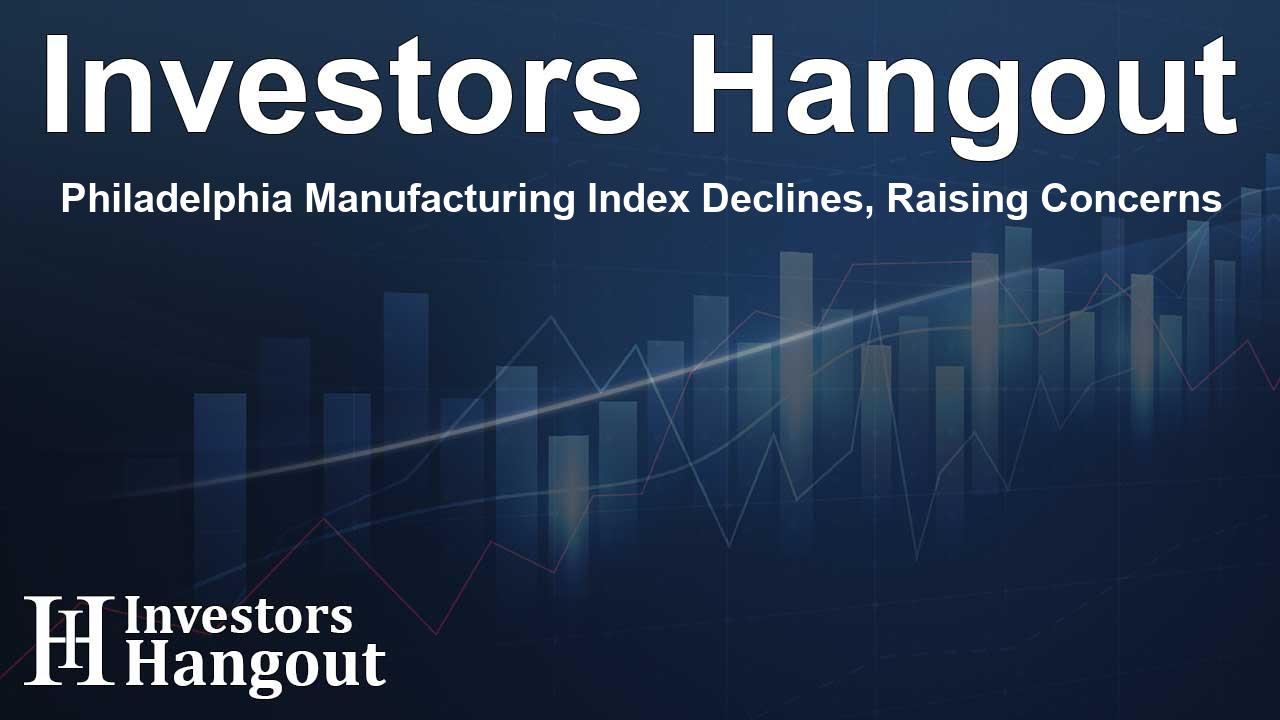Philadelphia Manufacturing Index Declines, Raising Concerns

Philadelphia Manufacturing Index Takes a Notable Dive
The Philadelphia Federal Reserve Manufacturing Index, a crucial gauge of business conditions in the area, has experienced a significant drop. This index is derived from a survey involving about 250 manufacturers located within the Philadelphia Federal Reserve district and has recently fallen to -5.5.
Impact of the Recent Numbers
This new figure sharply contrasts with initial predictions, which had anticipated a reading of 6.3, highlighting a considerable divergence from expected results. Typically, a result above zero on the index indicates improving conditions, while a result below zero suggests declining conditions. The negative figure of -5.5 paints a troubling image for the manufacturing sector in Philadelphia.
A Downward Shift from Previous Performance
When compared to the earlier measurement of 10.3, the current value reflects a drastic downturn. This notable shift signals a change in the manufacturing landscape of the region, transitioning from growth and expansion to a stage of contraction.
Importance to Economists and Investors
Economists and investors closely watch the Philadelphia Fed Manufacturing Index due to its valuable insights into the manufacturing sector's health. The recent decline into negative territory may influence the valuation of the US dollar. Generally, a higher-than-expected figure is seen as a bullish indicator for the dollar, whereas a lower-than-expected value is interpreted as a bearish signal.
Potential Broader Economic Implications
The implications of this significant decline are substantial. It hints at a potential downturn within the regional manufacturing sector, possibly affecting the national economy as a whole. Analysts and policymakers are likely to keep a vigilant watch on these developments, seeking indicators of either a recovery or further decline as we move forward.
Understanding Economic Volatility
This unexpected drop in the Philadelphia Fed Manufacturing Index serves as a stark reminder of the volatility associated with economic forecasting. It emphasizes the necessity of ongoing monitoring and analysis of economic indicators to guide decision-making and strategic planning within both business and finance realms.
Frequently Asked Questions
What does the Philadelphia Fed Manufacturing Index measure?
The Philadelphia Fed Manufacturing Index assesses business conditions in the manufacturing sector by surveying local manufacturers and providing insights into economic trends.
What does a negative index reading indicate?
A negative reading, such as -5.5, indicates deteriorating conditions and potential contraction within the manufacturing sector.
How does this drop affect the US dollar?
A decline in the manufacturing index can negatively impact investor confidence, which may lead to a weaker US dollar in foreign exchange markets.
Why is the manufacturing sector important to the economy?
The manufacturing sector significantly contributes to economic output, employment, and trade, thus influencing overall economic stability and growth.
Who monitors the Philadelphia Fed Manufacturing Index?
Economists, policymakers, and investors closely monitor the index for insights on economic performance and to inform financial decisions.
About Investors Hangout
Investors Hangout is a leading online stock forum for financial discussion and learning, offering a wide range of free tools and resources. It draws in traders of all levels, who exchange market knowledge, investigate trading tactics, and keep an eye on industry developments in real time. Featuring financial articles, stock message boards, quotes, charts, company profiles, and live news updates. Through cooperative learning and a wealth of informational resources, it helps users from novices creating their first portfolios to experts honing their techniques. Join Investors Hangout today: https://investorshangout.com/
Disclaimer: The content of this article is solely for general informational purposes only; it does not represent legal, financial, or investment advice. Investors Hangout does not offer financial advice; the author is not a licensed financial advisor. Consult a qualified advisor before making any financial or investment decisions based on this article. The author's interpretation of publicly available data shapes the opinions presented here; as a result, they should not be taken as advice to purchase, sell, or hold any securities mentioned or any other investments. The author does not guarantee the accuracy, completeness, or timeliness of any material, providing it "as is." Information and market conditions may change; past performance is not indicative of future outcomes. If any of the material offered here is inaccurate, please contact us for corrections.